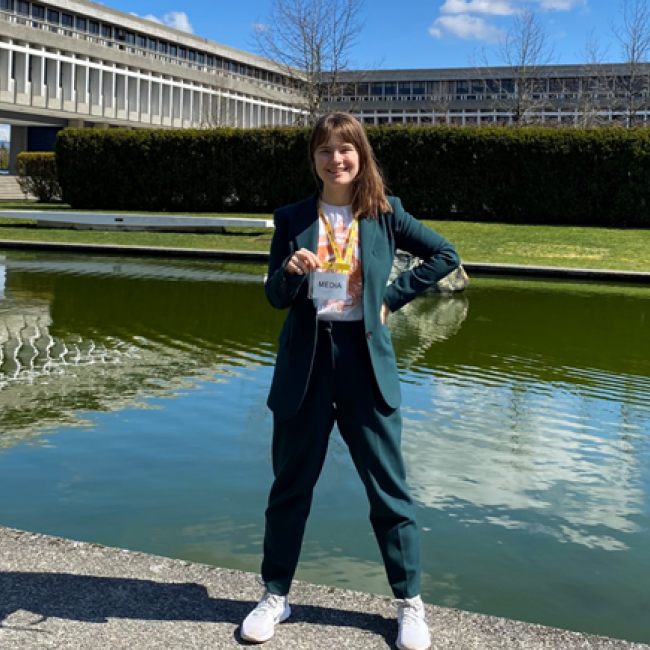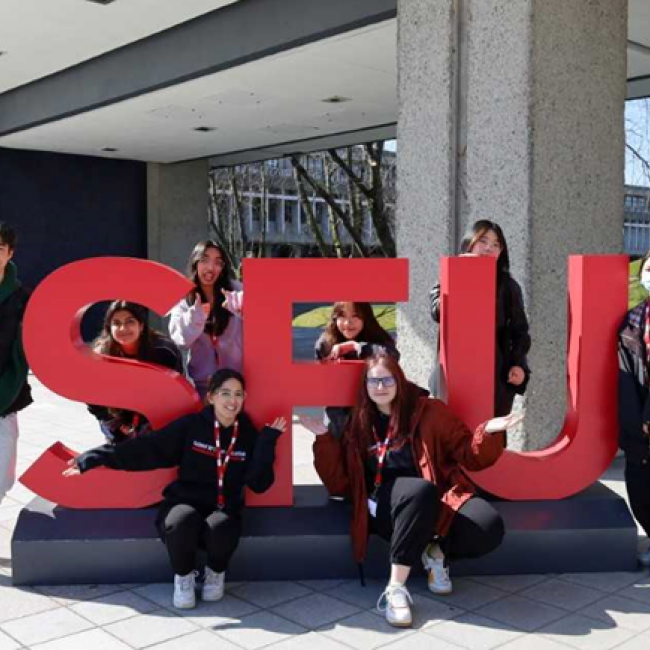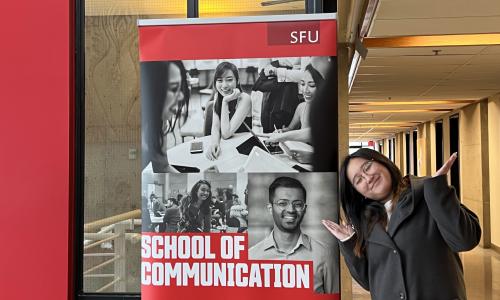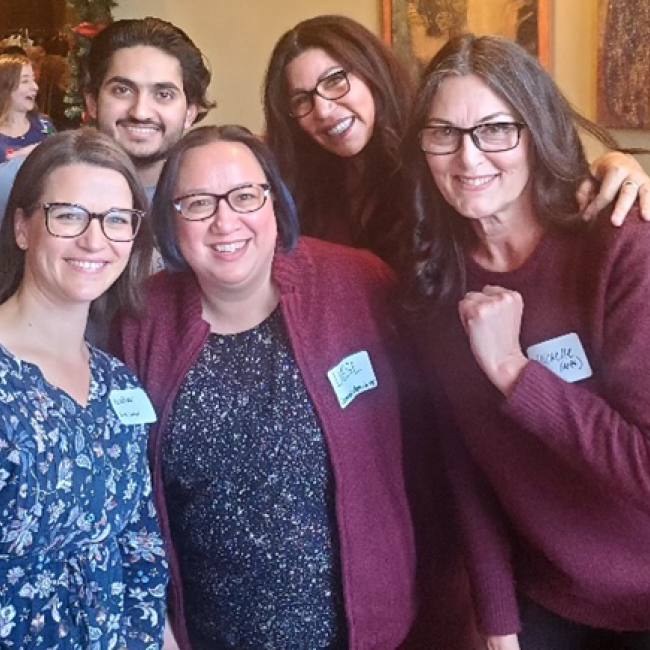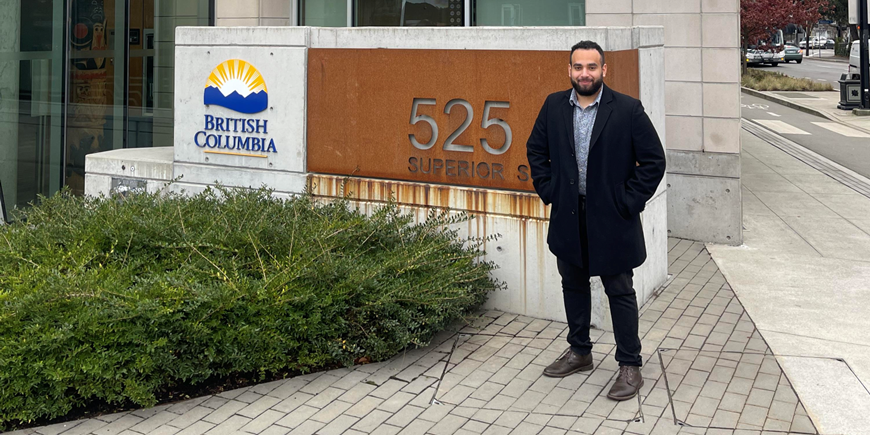
I am majoring in political science and minoring in international studies with a concentration of international security and conflict. I am in fourth year and last semester.
I have completed three co-op work terms. The first was completed working on a project conducted by SFU. The second and third term were completed at the BC Ministry of Environment & Climate Change Strategy within the Climate Action Secretariat.
The importance and urgency of the mission the BC Ministry of Environment & Climate Change Strategy had certainly helped instil high levels of motivation when completing my work tasks. Understanding that the research and projects which I am undertaking have a larger and important purpose in protecting British Columbians and meeting important emissions reductions targets helped me provide my best work.
Working within the Climate Action Secretariat, I had the opportunity to develop a multitude of skills that are crucial within a professional environment that the educational environment does not always give a chance to fully develop. Some of these skills are organizational skills within the specific context of working on a research project. I was assigned multiple research projects where I was afforded the liberty of deciding the best approach to completing these research projects. After completing the planning process, I was to oversee the execution of these research projects and seeing them through to completion.
The co-op experiences gave me the unique perspective of working within the public sector and the private sector. Working for a research project like the one in my first co-op term entailed a very specific set of instructions to be followed and set of questions to be answered. It was a very rigid project which had checkmarks that required completion. Working within the Climate Action Secretariat was a completely different experience. It was a much more open-ended process that took in my input. My supervisor worked with me to achieve an overall objective, however how best to go about achieving that was open to debate between myself and her. In the end, both experiences revolved around research projects but both had very different process for completion.
Working within the Climate Action Secretariat, there were several highlights both within my research projects and outside of it. My favorite work specific highlight is when I published my work report summarizing all my findings from the various research projects. Seeing the culmination of six months of hard work summarized and presented to my team and executives within the branch gave me a sense of pride and fulfillment.
Outside of work experience one of the main highlights was a goodbye dinner organized by my team as my term was coming to an end. I was extremely lucky in that I was placed in a very welcoming team who made me feel like a valued member from day one. They ensured that I felt welcome and at home in this new environment. The goodbye dinner was certainly bittersweet.
There has been a multitude of lessons that I have received from my co-op experiences. Most of them revolved at how I can adapt to a new professional working environment, as well as taking the skills that I have practiced within an educational environment and applying them to a professional environment. Some of the skills I picked up revolved around time management, being able to balance multiple work projects based on priority, and writing reports within a professional setting. If there is one thing that I am truly grateful for from these co-op experiences is the priceless work experience and connections that I was able to gain while still completing my degree. Most positions that are hiring require some sort of experience along with a degree. Being able to graduate with work experience that is related to my educational field will prove truly invaluable in the future.
My evaluation process of positions on whether they would be a good fit or not required an in-depth analysis of the posting. I would first begin to look and see who the employer is and do a little bit of research around the work they do. This would give me an idea if the work that I will be doing is something that will help fuel my motivation. I then begin to inspect the details of the work within the posting. This will give me an idea if the work that I will be doing is something that I either already have experience with, or whether it is something that my educational experience can compliment. If it is something that I have some sort of experience in the past, whether in the academic or professional field helps instill confidence that this position will be a good fit.
My coworkers and supervisor were incredibly supportive from day one to ensure that I am comfortable and feel welcome within my work term. Even though my supervisor couldn’t personally welcome me to the office as she was working remotely on my start date, she ensured that one of our team members was able to welcome me in reception and give me a tour of the office. My supervisor provided constant and consistent support by setting up daily 1-on-1 talks where we can address my work projects and I can bring forth any concerns that I have. Once I became more comfortable with the process and the work, these check-ins were limited to twice a week to make better use of our time. My team members went above and beyond in making me feel welcomed in that many of them took me to coffee breaks in my first week to introduce themselves and get to know me better. It has been my experience so far that most team members are extremely friendly and will provide any assistance needed to ensure that you can succeed within a co-op term.
First off, congratulations! Finding a co-op placement is an extremely challenging process and landing your first position is something to be proud of. To make the most of your experience, I really recommend that you work from the office if that is possible. Having worked a hybrid position which other co-ops chose to do remotely, I can personally guarantee that it is a lot more fun and interesting. Another thing is, don’t hesitate to ask for help. Your coworkers and supervisors understand that you are still a student who will from time to time need assistance, there is certainly no shame in asking and when you do, it can ensure that you give the best possible work product which you can be proud of. And lastly, enjoy it! Co-op can be an amazing experience where you get to meet new people, make new connections, experience new things and maybe even experience a new city; make the most of it!








